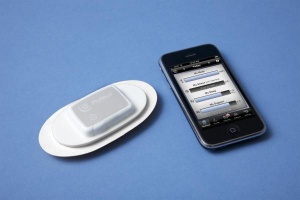 The United Kingdom's National Health Service plans to begin piloting Proteus Biomedical's "smart pills" this month to help curb health costs due to medication non-adherence among heart failure patients, according to a report in the Financial Times. The Royal Berkshire and Imperial College healthcare trusts are currently looking for 40 patients for the clinical trial, which will last four months. The patients will take bisoprolol, a beta-blocker, and furosemide, a diuretic pill, fitted with Proteus' edible microchips. If the study is successful, NHS plans a 12-month long version of the study.
The United Kingdom's National Health Service plans to begin piloting Proteus Biomedical's "smart pills" this month to help curb health costs due to medication non-adherence among heart failure patients, according to a report in the Financial Times. The Royal Berkshire and Imperial College healthcare trusts are currently looking for 40 patients for the clinical trial, which will last four months. The patients will take bisoprolol, a beta-blocker, and furosemide, a diuretic pill, fitted with Proteus' edible microchips. If the study is successful, NHS plans a 12-month long version of the study.
Pharmaceutical giant Novartis has already piloted Proteus' technology for a small 20 patient study that tracked patients’ compliance with their blood pressure drug regimen. The patients took blood pressure drug Diovan and the study organizers track their compliance via Proteus’ “chip in the pill” technology, which reports the time of ingestion to a receiver sensor, called Raisin that sits on the patient’s shoulder. The study improved compliance among the patients from 30 percent to 80 percent after six months, according to Novartis.
In the upcoming NHS trial of heart failure patients, the Raisin patches will not only monitor whether patients have taken their pills but will also allow physicians to track the patients' heart rate and whether a patient is laying horizontally while sleeping or frequently sitting up. Not being able to lay flat at night is a sign of fluid in the lungs.
In other news, according to the Financial Times, Proteus has hired former Ideo design guru Arna Ionescu (read her recent column of future health technology in Forbes here) to run Proteus' product development and user experience division. That's a clear sign that Proteus won't just be selling microchip pills to pharmaceutical companies -- it's also already focused on developing its wireless health service, too.

















